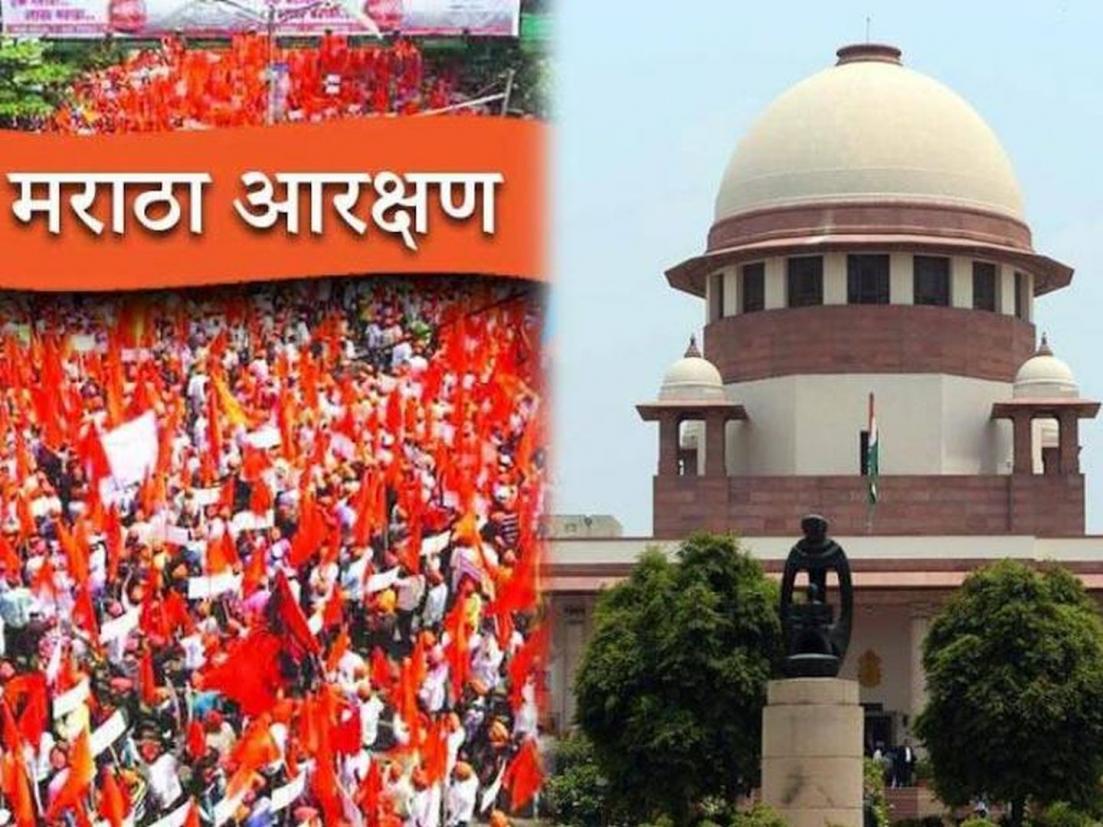
The Supreme Court has quashed the law granting reservation to the Maratha community in admissions and government jobs in the State of Maharashtra. The 5 Judge Bench unanimously held that there were no ‘exceptional circumstances’ justifying the grant of reservation to Marathas in excess of 50 percent ceiling limit as a socially and economically backward class.
The apex court was hearing a batch of pleas challenging the Maharashtra State Reservation for Socially and Educationally Backward Classes (SEBC) Act, 2018 which provided 16 percent reservation for Marathas in jobs and education. After the grant of this Maratha quota, the reservation for Marathas stood at 68 percent, according to Bar & Bench.
To this, the court ruled, “The 2018 Act as amended in 2019 granting reservation for Maratha community does not make out any exceptional circumstance to exceed the ceiling limit of 50 percent reservation”, reported Bar & Bench. The Act of 2018 violates the principles of equality and exceeding the ceiling limit of 50 percent clearly violates Articles 14 and 15 of the Constitution, the Court opined.
The court also ruled that there was no need to refer the 1992 Indira Sawhney judgement, (which fixed the reservation limit at 50 percent), to a larger Bench, according to a LiveLaw report. It called the Indira Sawhney judgment “good in law”.
“We do not find any substance in the argument to refer the judgment in Indra Sawhney to a larger Bench. The said judgment has been repeatedly followed by this Court and has received approval by at least four Constitution Benches of this Court. We also follow and reiterate the proposition laid down in Indra Sawhney in paragraph 809 and 810,” pronounced the court, according to Bar & Bench.
As per media reports, a few petitions were filed, challenging the 102nd Constitution Amendment that inserted Articles 338-B and 342-A in the Constitution. It lays down the constitutional status of the National Commission for Backward Classes. Article 334B deals with the structure, duties, and powers of this Commission while 342A lays down information about the power of the President to notify a class as Socially and Educationally Backward (SEBC) and the power of Parliament to alter the Central SEBC list. However, the Bench rejected the argument that the 102nd Constitution amendment violated the basic structure of the Constitution.
In 2018, the then Devendra Fadnavis-led government had approved the 16 percent reservation for the Marathas in jobs and education after state-wide protests. Soon, petitions challenging the SEBC Act were filed before the Bombay High Court which upheld the constitutional validity of the law, but stated that 16 percent reservation was not justifiable. It directed the state government to reduce the quota to 12-13 percent as per the recommendations of the State Backward Classes Commission.
The Supreme Court then heard a batch of pleas against the High Court order, issuing a notice to the state government in July 2019, as per Bar & Bench. On September 9, 2020, a three-judge Bench of the Supreme Court referred the cases to a larger Bench and stayed the operation of Maratha reservation beyond 50 percent.
The judgment was delivered by a Constitution bench of Justices Ashok Bhushan, L Nageswara Rao, S Abdul Nazeer, Hemant Gupta and S Ravindra Bhat.
(To be updated with judgment)
Related:
Supporting caste: A peek at the massive machine behind the enormous Maratha rallies